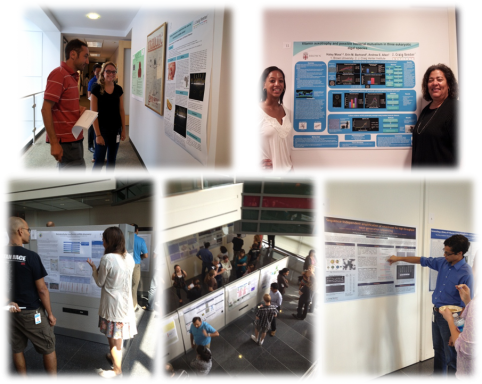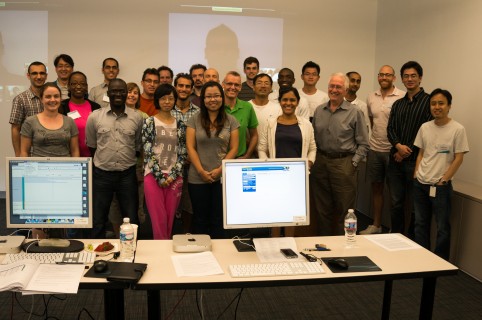This summer we are offering two professional development workshops: GenomeSolver and Bioinformatics: Unlocking Life through Computation. Both explore bioinformatics, microbial diversity and the implementation in the undergradauate or high school classrooms.
The GenomeSolver workshop trains faculty on genome analysis. Workshop attendees will learn about general methodologies, standards, and processes used to annotate and analyze microbial genomes. The workshop contents will be available to aid the faculty in developing teaching modules. In addition, extensive documentation on methodologies and tools will be available via the online environment created for this project. On online web portal Genome Solver (www.genomesolver.org) will be a virtual space for development and sustaining of community. Genome Solver will assist faculty with technical issues and curricular design, as well as an online environment for the ongoing sharing of information including publication of student work.
http://www.weizhongli-lab.org/cms/education/prodev/genome-solver-annotation-workshops
Bioinformatics: Unlocking Life through Computation is a new opportunity for high school teachers. Genomics and biotechnology are valuable tools in our quest to understand life and nature. However, introducing the science classroom to the computational and mathematical underpinnings of biology can be challenging. The goal of this workshop is to introduce a curriculum for mathematics and science education in the area of genomics (with a focus on the fascinating world of microbes). Educators will be introduced to the various analysis and computational challenges that arise in this discipline. Workflow examples illustrating comparative genomic analysis will be made available through the JCVI Metagenomics Report (METAREP) software infrastructure. The eventual aim is for the educational material to be integrated with local high school curricula requirements to expose students to both hypothesis-driven and discovery-based science.














